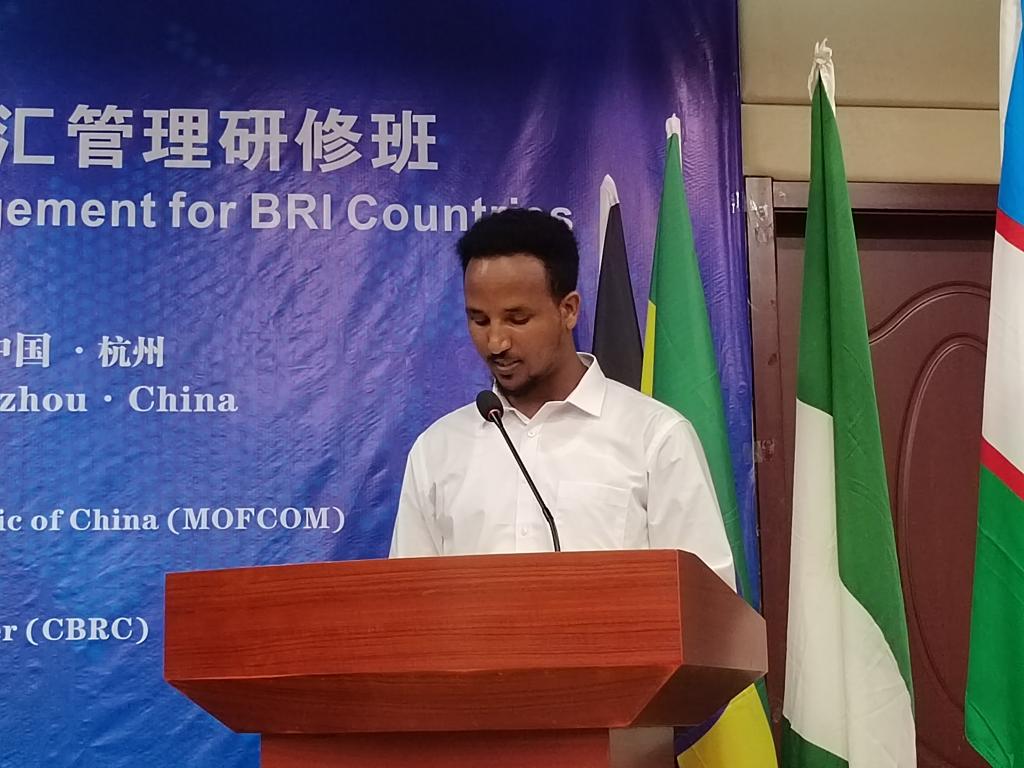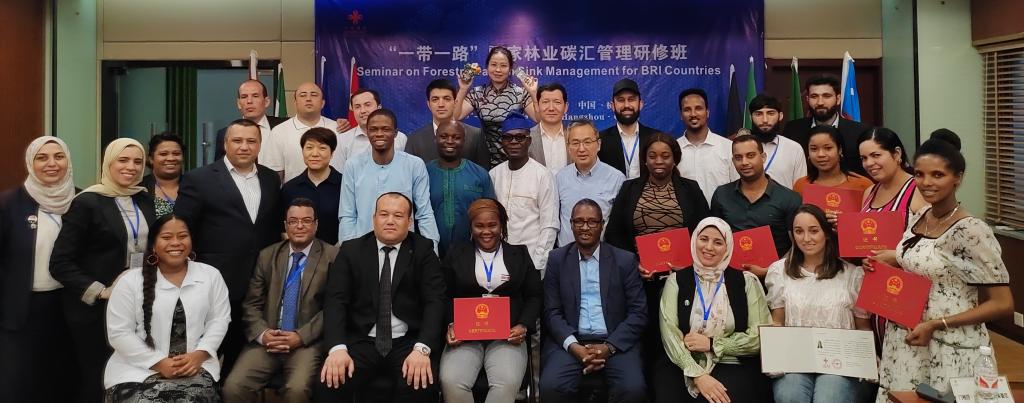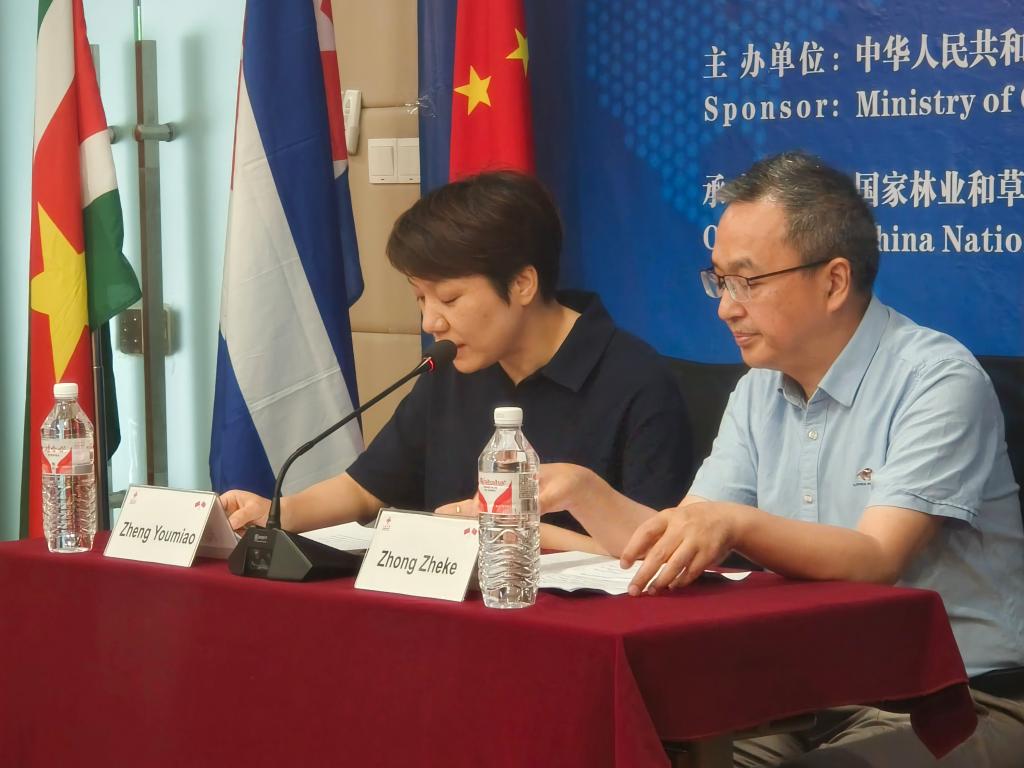


A total of 29 government officials, experts and scholars from seven BRI countries, including Ethiopia, Nigeria, Suriname, Afghanistan, Cuba, Egypt, and Uzbekistan participated in this 14-day seminar.
On 2 July 2024, the closing ceremony of the seminar on forestry carbon sink management for BRI countries took place in Hangzhou. The seminar was hosted by the Ministry of Commerce of China and organized by China National Bamboo Research Center of the National Forestry and Grassland Administration (hereinafter referred to as the "Bamboo Center”), with participation of 29 government officials, experts and scholars from seven BRI countries including Ethiopia, Nigeria, Suriname, Afghanistan, Cuba, Egypt, and Uzbekistan. All participants have proactively involved in and learned from the 14-day training program. Mr. Zhong Zheke, deputy director of the Bamboo Center, attended the closing ceremony and delivered a speech.
Mr. Zhong Zheke appreciated the efforts all participants put in cooperating and learning. He also expressed his hope to deepen exchanges and cooperation with BRI countries through this seminar.
As a representative of the participants, Professor Demis Taliku Kula from Ambo University in Ethiopia spoke during the ceremony. He sincerely thanked the Chinese government for the learning opportunity and highly praised the warm reception of the Bamboo Center as well as the well-organized training course. He especially shared the Ethiopian government's flagship project, Green Legacy Initiative. This project draws on China's successful bamboo planting technology, and has achieved remarkable phased achievements in addressing climate warming, promoting sustainable development, and carbon sink management.
Through in-depth exchanges in the seminar, the Bamboo Center and Ambo University in Ethiopia have preliminarily agreed on a letter of intent for cooperation, aiming to further implement Ethiopia's Green Legacy Initiative and China's Bamboo as a Substitute for Plastic Initiative, to create a green heritage that is beneficial to both countries, and set a precedent for global sustainable agricultural practices.
Source: http://www.caf.ac.cn/info/1255/52932.htm